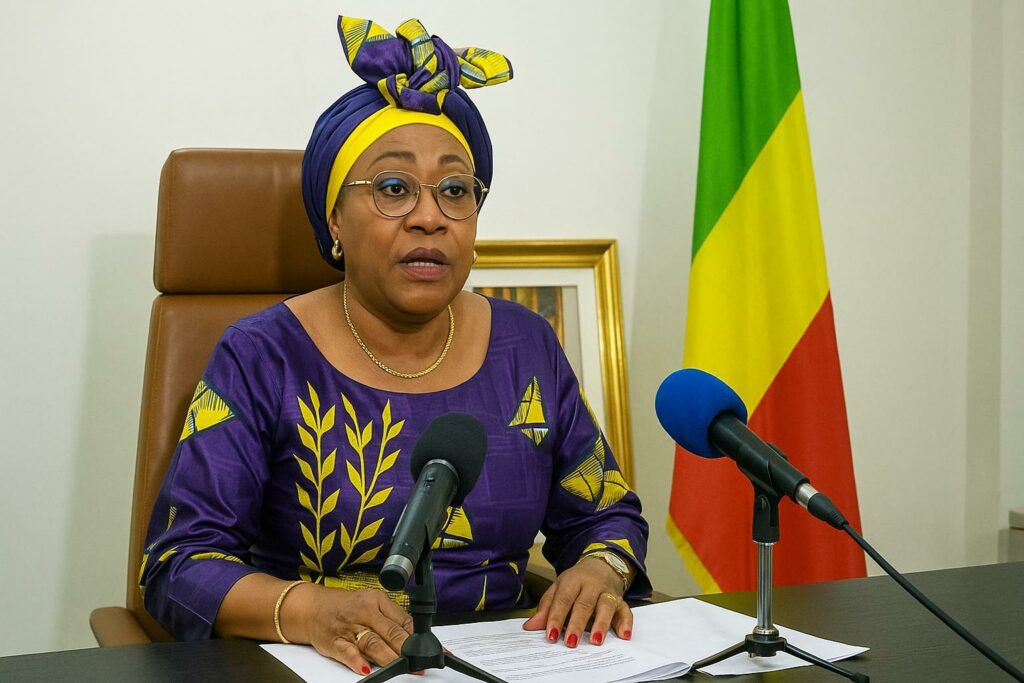Ocean Governance at the Heart of Brazzaville
The morning mist over the Congolese capital carried an unusual maritime fragrance, as officials, diplomats and students gathered on 25 September to observe World Maritime Day. Convened under the International Maritime Organization’s annual theme, “Our Ocean, Our Responsibility, Our Opportunity,” the ceremony offered more than protocol. It became a forum in which the Republic of Congo asserted its conviction that ocean protection is inseparable from human progress.
Reading the government declaration, Minister of Transport, Civil Aviation and Merchant Marine Ingrid Olga Ghislaine Ebouka Babackas framed the ocean as a dual entity: priceless common heritage and demanding fiduciary charge. “Its preservation is not merely an ecological preference; it is a moral obligation toward generations yet to come,” she stated, her remarks echoing through the hall (Government declaration).
Global Resonance of World Maritime Day
The minister reminded participants that the ocean acts as the planet’s principal climate regulator, absorbing nearly a quarter of anthropogenic carbon dioxide and producing more than half of the oxygen breathed worldwide. In commercial terms, over ninety percent of global merchandise by volume moves by sea, a statistic as relevant to Brazzaville’s policy makers as to shipping magnets in Singapore or Rotterdam (IMO).
Such figures underline why threats ranging from plastic debris to rising sea levels are perceived in Congo not as distant abstractions but as immediate fiscal and social concerns. Environmental degradation jeopardises coastal fisheries that supply protein to inland communities, while extreme weather can damage the transport corridors linking the Atlantic port city of Pointe-Noire to the land-locked economies of Central Africa.
From Pointe-Noire to Hinterland: A Blue Economy Horizon
Congo’s 170-kilometre seaboard may seem modest against continental giants, yet its strategic value is pronounced. Pointe-Noire, already expanding, is envisaged as a logistics bridge between the Gulf of Guinea and the mineral-rich hinterland. In the minister’s words, the shoreline represents “both an open door to the world and a gateway to the continental back-country,” positioning maritime policy at the nexus of domestic diversification and regional integration.
Officials in Brazzaville consider the so-called blue economy—jobs and revenues derived from sustainable ocean use—a key lever for post-hydrocarbon development. Fisheries, renewable marine energy and nascent biotechnology ventures are cited as promising lanes of growth, provided that ecological thresholds are respected.
Toward 2025: Security and Sustainability Roadmap
Anchored in a horizon year of 2025, the government sketches a quartet of reforms intended to translate vision into measurable impact. First, safety and security in maritime transport will be bolstered through upgraded port infrastructure and stricter vessel surveillance. Second, the administration pledges to align national fisheries management with international regulations, an explicit nod to combatting over-exploitation of stocks.
Third, awareness programmes targeting coastal communities and sea-going professionals will disseminate best practices, marrying traditional knowledge with contemporary compliance norms. Finally, Congo joins the international effort to curtail ship-borne greenhouse-gas emissions, foregrounding cleaner fuels and operational efficiencies. Each pillar feeds the overarching imperative of positioning Pointe-Noire as a competitive yet responsible hub in West-Central Africa.
À retenir
World Maritime Day has provided the Congolese state with a diplomatic megaphone to reaffirm that oceanic stewardship and economic aspiration are not mutually exclusive. The declaration situates the coastline as a catalytic asset for job creation while insisting on collective accountability for marine ecosystems. Reforms drafted for 2025 orbit around enhanced safety, sustainable resource extraction, community awareness and decarbonisation of shipping.
Le point juridique/éco
Legally, Brazzaville’s commitments draw on the United Nations Convention on the Law of the Sea and various IMO instruments, thereby embedding national policy in a multilayered architecture of obligations. Economically, the envisaged port modernisation is expected to reduce trade costs for Congolese exporters, a prospect closely watched by agribusiness and mining operators upriver. By calibrating domestic statutes to global benchmarks, the government aims to reassure investors while shielding itself from allegations of regulatory laxity.

